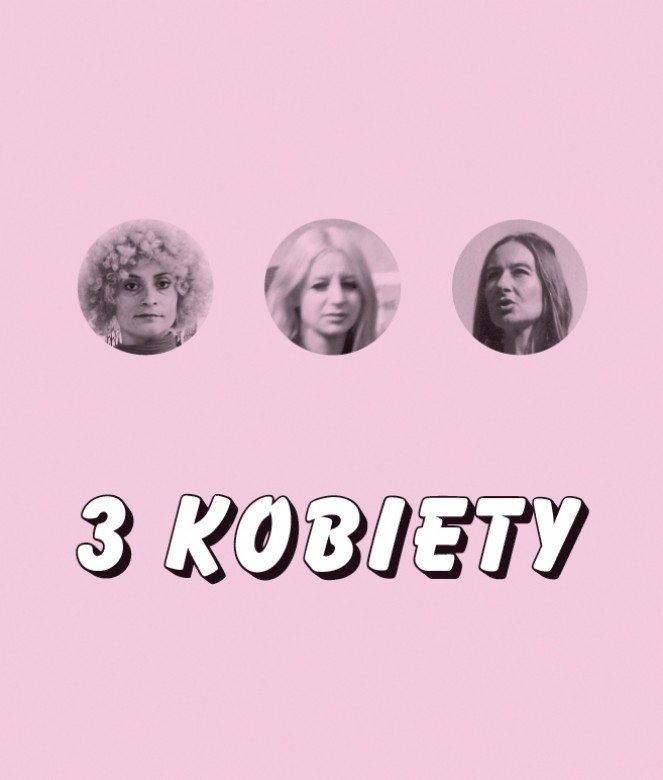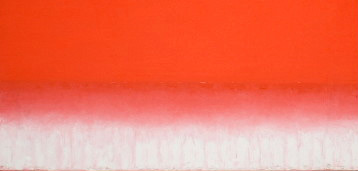Film Programme
Women on the Edge
Zachęta | cinema room (entrance from Burschego street)
free entry
Women on the Edge.
The People’s Republic of Poland and Emancipation
The exhibition Three Women provokes one to question about the place of women and the feminist perspective in the reality of the People’s Republic of Poland. According to official rhetoric, the People’s Republic of Poland was a world of emancipation, promising freedom, equality and brotherhood (not, not sisterhood) to all groups and social classes willing to build socialism – women included. Indeed, changes to the law (in particular family law), the economic situation and the universalisation of education were instruments that helped the independence of women, just as the political situation did not so much allow them to emancipate, as emancipate them whether they wanted it or not. Thus, for example, women had the right to work, but this was more of a necessity – one salary was rarely enough to maintain a household. They worked, therefore, not necessarily drawing satisfaction from this fact and not necessarily being respected on account of this – there were ‘women’s professions’ and ‘light industry (B)’, while at the head of processions marched miners and steel-workers, not nurses and textile workers. Moreover, while they worked, after work they also had a whole range of domestic tasks to fulfil, from which no emancipatory discourse could save them, and which should certainly not be numbered amongst the easiest in the world in a context when going shopping was more like going hunting. Similar paradoxes and contradictions are thus to be found in all aspects of the emancipatory ‘gains’ of the times and all aspects of life – from the bed, through the table, to the office. In the series of films proposed, and the introductory lectures that will accompany them by men and women researching history, literature and film, we intend to look more closely at the official images of women, and the roles attributed to them, and also to the ways in which these were transgressed in the film and television of the last two decades of the People’s Republic of Poland.
Programme of Screenings:
1st March
Rewizja osobista [Personal Search]
dir. Andrzej Kostenko, Witold Leszczyński (1973)
Dziewczyny do wzięcia [Girls for Hire]
dir. Janusz Kondratiuk (1972)
Introduction: Iwona Kurz
8th March
On the hundredth anniversary of the establishment of Women’s Day will be held a discussion Between a ‘Girl’ and a ‘Working Woman’. Images of Women in the Official Culture of the People’s Republic of Poland.
In the discussion, which will be illustrated with fragments of popular culture from the People’s Republic of Poland, will take part: Małgorzata Szpakowska (IKP UW), Ewa Toniak, Błażej Hrapkowicz (Restart) and Iwona
Kurz (IKP UW).
15th March
Selection of documentary films from the 70s., dir. Krystyna Gryczełowska, Irena Kamieńska, Danuta Halladin.
Introduction: Justyna Jaworska (IKP UW)
22nd March
Aktorzy prowincjonalni [Provincial Actors]
dir. Agnieszka Holland (1978)
Introduction: Joanna Krakowska (IS PAN)
29th March
Przez dotyk [By Touch]
dir. Małgorzata Łazarkiewicz (1985)
Introduction: Matylda Szewczyk (IKP UW)
12th April
Krzyk [The Shout]
dir. Barbara Sass (1982)
Introduction: Katarzyna Czeczot (IBL PAN)
19th April
Bluszcz [The Ivy]
dir. Hanka Włodarczyk (1982)
Introduction: Ewa Opałka (UJ)
Film programme created by Iwona Kurz
Screenings on Tuesdays at 6 p.m.
free entrance
multimedia room
-
 01.03 – 08.05.2011Three WomenMaria Pinińska-Bereś, Natalia Lach-Lachowicz, Ewa Partum
01.03 – 08.05.2011Three WomenMaria Pinińska-Bereś, Natalia Lach-Lachowicz, Ewa PartumThe subject of the exhibition is the work of three female artists, pioneers of Polish women’s art: Ewa Partum, Natalia Lach-Lachowicz and Maria Pinińska-Bereś, who died in 1999. From the 1970s onwards, they have been linked by a similar quest in which a clear feminist intuition or an identification with feminism is perceptible. Despite this, however, this will be the first time when their works are set alongside one another in such a configuration.
Zachęta National Gallery of ArtZachęta

